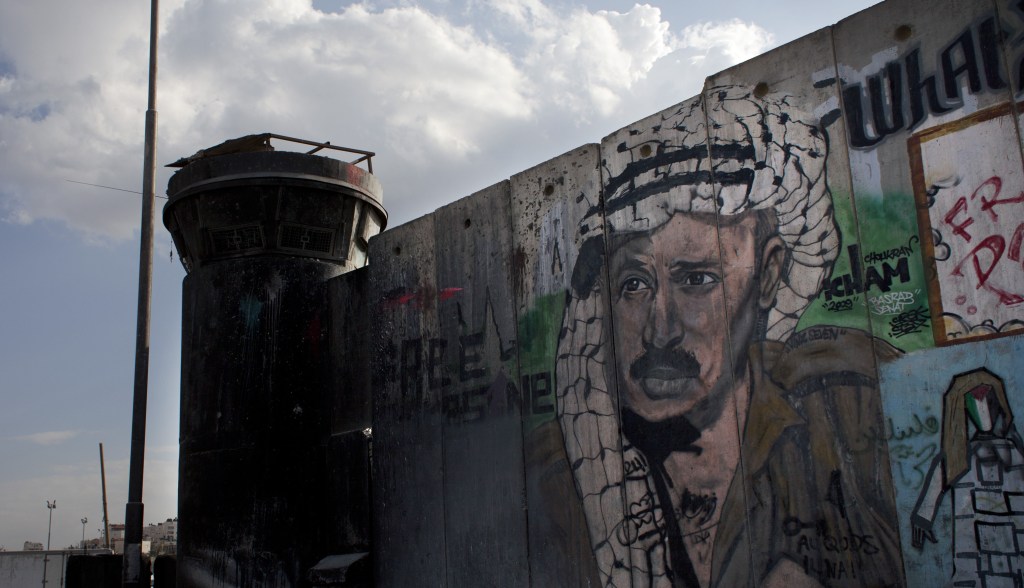RAMALLAH, West Bank — Four investigations, hundreds of testimonies and stacks of medical reports on Yasser Arafat’s unexplained death in 2004 have failed to produce hard evidence of what killed him – and findings presented Friday only created more confusion.
Palestinian officials said a report they received from Russia on the role of radioactive polonium in Arafat’s death was inconclusive. They spoke just a day after Swiss scientists said the Palestinian leader was probably poisoned by the rare and extremely lethal substance.
Despite those discrepancies, the Swiss and Russian reports agreed that Arafat’s death “was not caused by old age or disease, but as a result of a toxic substance,” said Dr. Abdullah Bashir, a medical expert in the three-member Palestinian team that has been investigating Arafat’s death. This, he told a news conference, is in line with the long-standing Palestinian contention that Arafat was poisoned.
The reports revived Palestinian allegations that Israel was behind Arafat’s death, despite its denial.
The Palestinian team’s leader, Tawfik Tirawi, said Israel had the technical means and the motive.
“I say, with all the details available about Yasser Arafat’s death, that he was killed, and that Israel killed him,” he said. The former Palestinian intelligence chief did not present evidence to back up the claims.
In the four years leading up to his death, Arafat’s relationship with his longtime nemesis, Israel’s then-Prime Minister Ariel Sharon, had become increasingly hostile. Sharon, a hard-liner, blamed Arafat for encouraging anti-Israeli violence instead of working toward a peace deal and kept him isolated at his West Bank compound for extended periods.
Former Sharon aide Raanan Gissin reiterated Friday that Israel had nothing to do with Arafat’s death. “The Palestinians are using Israel as a scapegoat,” he said. “If Arafat was murdered, then (the killer) should be sought among the heads of the Palestinian Authority.”
Tirawi said his team would spare no effort to solve the mystery, but it’s not clear where an investigation could go from here, considering the Palestinians’ limited technical means. Tirawi said a decision on a possible international tribunal – like the one that investigated the assassination of Lebanese Prime Minister Rafik Hariri – would be up to Arafat’s successor, President Mahmoud Abbas.
Abbas has not commented on the substance of the latest findings. A new probe could invite close scrutiny of Israel as well as Palestinian aides and bodyguards who surrounded Arafat in his compound.
Arafat died Nov. 11, 2004 at a French military hospital, a month after falling ill at his West Bank headquarters. At the time, French doctors said he died of a stroke and had a blood-clotting problem, but records were inconclusive about what caused that condition.
The Palestinians launched an investigation at the time, and Tirawi said Friday that it encompassed hundreds of statements from Palestinians and non-Palestinians in the West Bank and around the world. No suspects emerged and no arrests were made.
The investigation hit a dead end, and was only revived when the satellite TV station Al-Jazeera persuaded Arafat’s widow, Suha, last year to hand over his hospital bag with underwear, headscarves and other belongings.
The items in the bag were examined by Switzerland’s Institute for Radiation Physics, which found elevated traces of polonium.
Earlier this year, Arafat’s grave in his Ramallah compound was reopened. Swiss, Russian and French scientists were given samples of the remains and burial soil.
Send questions/comments to the editors.



Success. Please wait for the page to reload. If the page does not reload within 5 seconds, please refresh the page.
Enter your email and password to access comments.
Hi, to comment on stories you must . This profile is in addition to your subscription and website login.
Already have a commenting profile? .
Invalid username/password.
Please check your email to confirm and complete your registration.
Only subscribers are eligible to post comments. Please subscribe or login first for digital access. Here’s why.
Use the form below to reset your password. When you've submitted your account email, we will send an email with a reset code.